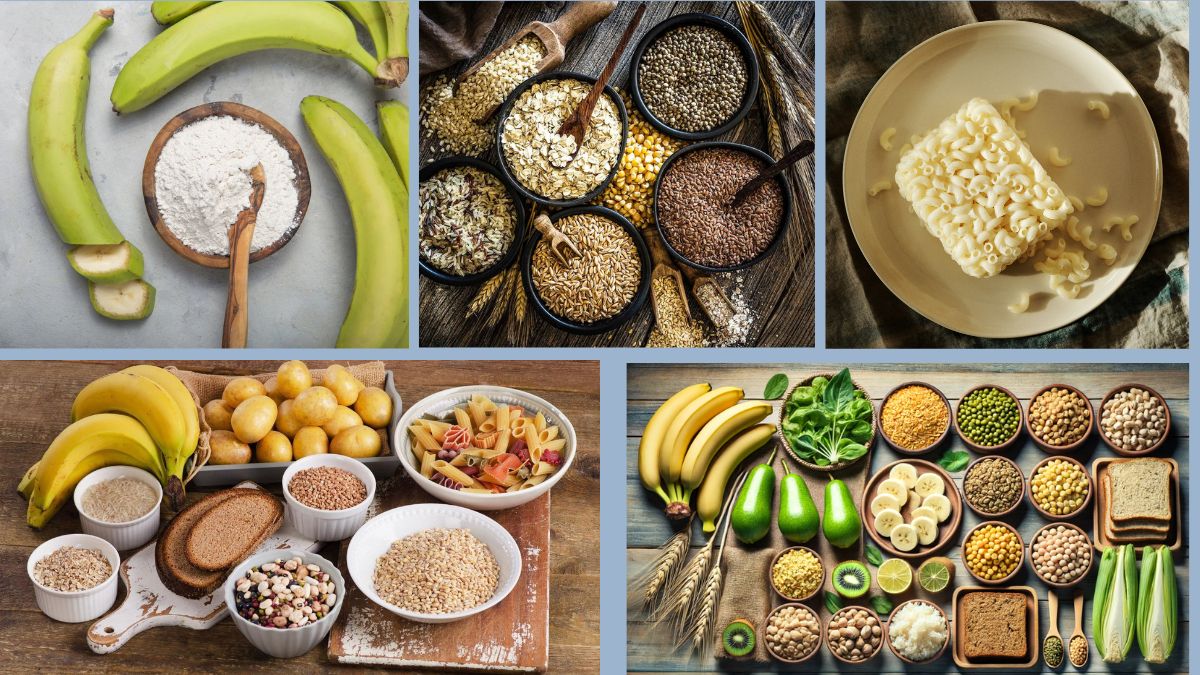Introduction: The Fiber You Didn’t Know You Needed
When people talk about gut health, fiber usually gets the spotlight. But there’s a special kind of fiber—less talked about yet incredibly powerful—called resistant starch. If you’ve never heard of it, you’re not alone. Even though it’s found in everyday plant-based foods, most people aren’t getting enough of it.
So what makes resistant starch such a big deal?
It not only supports smooth digestion and regularity, but also acts as a prebiotic, feeds your good gut bacteria, reduces inflammation, and even helps regulate blood sugar levels. Best of all, it’s easy to incorporate into a vegetarian or plant-based diet—no animal products required.
Let’s take a deeper look at why resistant starch is a true game-changer for digestive health.
What Is Resistant Starch?

Resistant starch is a type of carbohydrate that “resists” digestion in the small intestine. Instead of being broken down into sugar and absorbed, it travels to the large intestine, where it’s fermented by gut bacteria.
This fermentation process produces short-chain fatty acids (SCFAs), particularly butyrate, which plays a critical role in:
- Nourishing the cells of the colon
- Reducing inflammation
- Strengthening the gut lining
- Supporting immune function
- Promoting regular, comfortable bowel movements
Think of resistant starch as fertilizer for your microbiome—it feeds the good bacteria, allowing them to thrive and outcompete the bad ones.
Key Benefits of Resistant Starch for Digestive Health
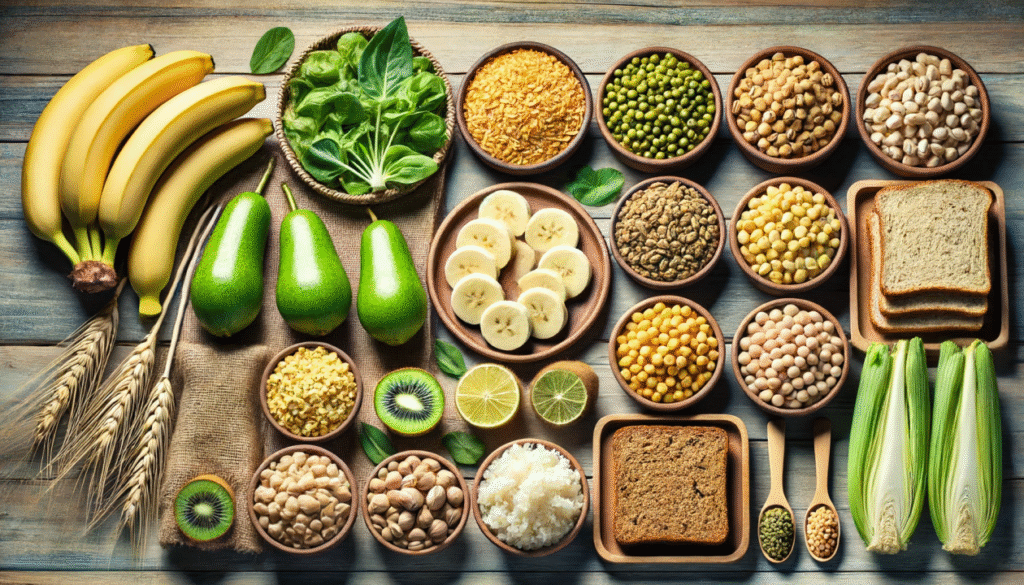
1. Improves Gut Microbiome Diversity
Good bacteria like Bifidobacteria and Lactobacillus thrive on resistant starch. A healthy gut microbiome has more of these beneficial species, which help fight pathogens, reduce inflammation, and even produce neurotransmitters like serotonin.
2. Increases Butyrate Production
Butyrate, a short-chain fatty acid, is one of the most studied gut health compounds. It strengthens the gut barrier, improves nutrient absorption, and reduces the risk of leaky gut syndrome. It may even help prevent colon cancer and inflammatory bowel diseases like Crohn’s and ulcerative colitis.
3. Regulates Bowel Movements
Because resistant starch adds bulk and moisture to stool, it helps relieve constipation naturally. It also softens stool, making elimination more comfortable and predictable—without the need for laxatives.
4. Reduces Bloating and Gas (Long-Term)
Although some people may initially experience mild bloating, long-term intake of resistant starch has been shown to reduce gas, discomfort, and irregularity—especially when introduced gradually.
5. Supports Blood Sugar and Insulin Sensitivity
Since resistant starch doesn’t spike blood sugar like regular starch, it’s beneficial for people managing insulin resistance, prediabetes, or type 2 diabetes. It slows down digestion, reduces post-meal glucose spikes, and enhances insulin sensitivity.
Top Plant-Based Sources of Resistant Starch
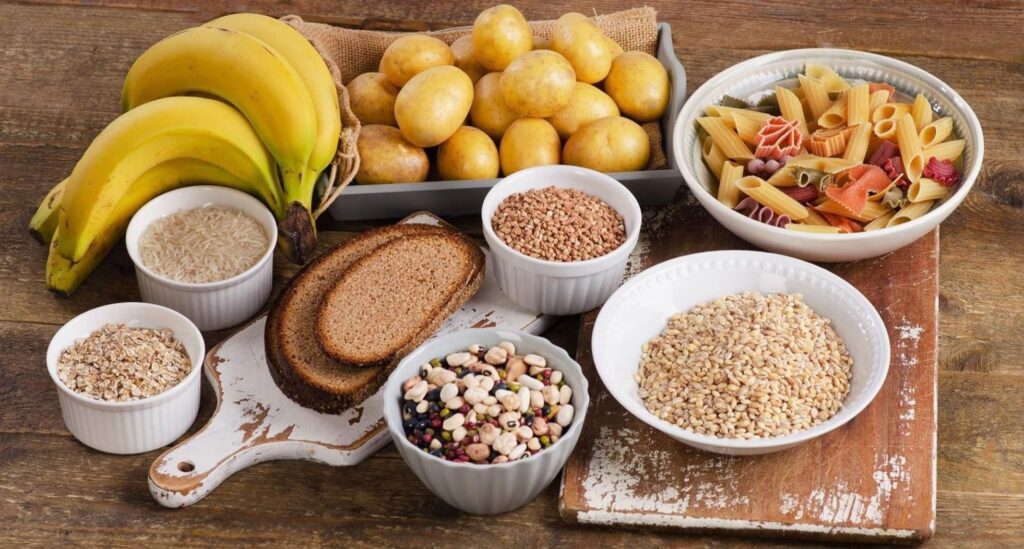
You don’t need animal products to get this gut-friendly nutrient. Here are some excellent vegetarian and vegan sources of resistant starch:
1. Green (Unripe) Bananas
Green bananas contain high levels of resistant starch before they ripen and turn sugary. Slice them into smoothies or blend into overnight oats. You can also freeze them for a less starchy, subtly sweet taste.
2. Cooked and Cooled Potatoes
Once white or red potatoes are cooked and then cooled (e.g., in a potato salad), the starch changes structure and becomes retrograded, forming resistant starch. Reheating them gently won’t destroy this benefit—perfect for meal prepping gut-friendly dishes.
3. Cooked and Cooled Rice
Just like potatoes, white or brown rice becomes richer in resistant starch after being cooked and cooled. Add it to cold grain salads, veggie sushi rolls, or enjoy with steamed vegetables and tamari.
4. Plantains (Especially Green Ones)
Plantains are a staple in many tropical diets and offer substantial resistant starch when slightly underripe. Bake, steam, or pan-fry in a small amount of avocado oil and pair with beans or greens.
5. Oats (Especially Steel-Cut or Rolled, Served Cold)
Soaked oats, like in overnight oats, are a simple way to add resistant starch to your breakfast. The longer they soak, the more resistant starch they develop. Add flax, chia, or almond butter for a fiber- and fat-rich combo.
6. Legumes (Lentils, Chickpeas, Black Beans)
Legumes are not only high in protein and fiber but also naturally rich in resistant starch, especially when cooked and cooled. Use them in bean salads, hummus, wraps, or stews.
Sample Gut-Friendly Meal Plan Featuring Resistant Starch
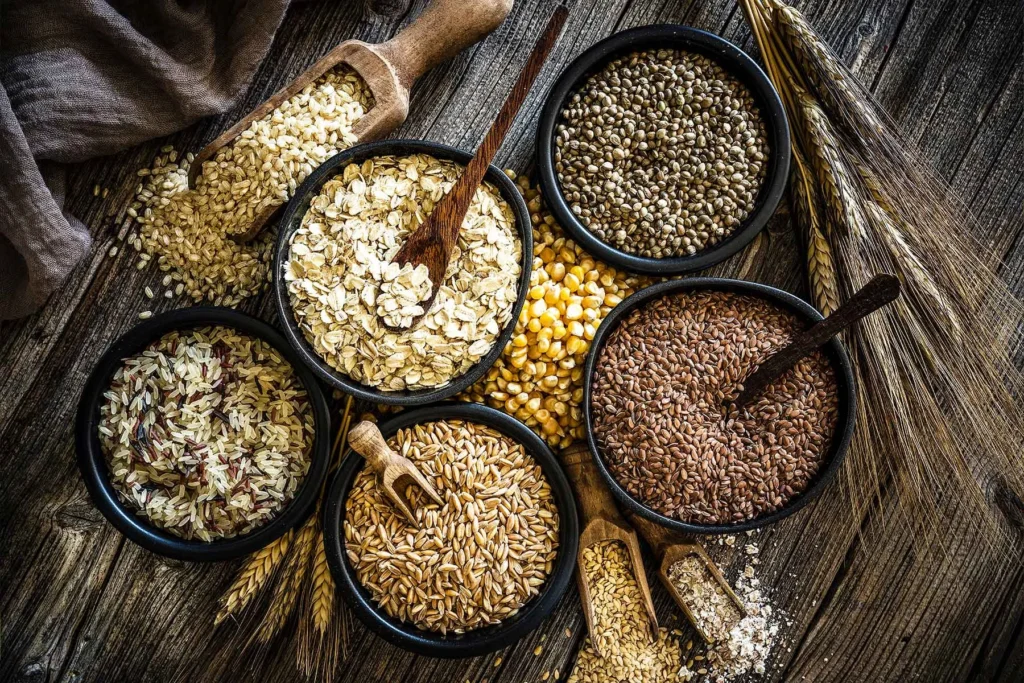
Breakfast: Overnight Oats with Green Banana and Chia Seeds
- Rolled oats soaked in almond milk
- Sliced green banana
- 1 tbsp chia seeds
- Sprinkle of cinnamon and hemp seeds
This combo provides resistant starch, soluble fiber, and omega-3s to kickstart digestion.
Lunch: Chickpea & Quinoa Salad with Cold Sweet Potato Cubes
- Cooked and cooled quinoa
- Roasted and cooled sweet potatoes
- Canned chickpeas, rinsed
- Red onion, parsley, and lemon-tahini dressing
This fiber-filled bowl keeps you satisfied while feeding your microbiome.
Snack: Green Plantain Chips (Baked)
- Slice green plantains
- Toss with olive oil, sea salt, and paprika
- Bake until crisp for a savory, gut-friendly snack
Dinner: Cold Rice Bowl with Stir-Fried Veggies and Kimchi
- Cooked and cooled brown rice
- Steamed broccoli, bok choy, carrots
- Topped with kimchi or fermented cabbage
- Optional drizzle of sesame-lime sauce
Perfect balance of resistant starch, fiber, and natural probiotics.
How to Start Adding Resistant Starch to Your Diet
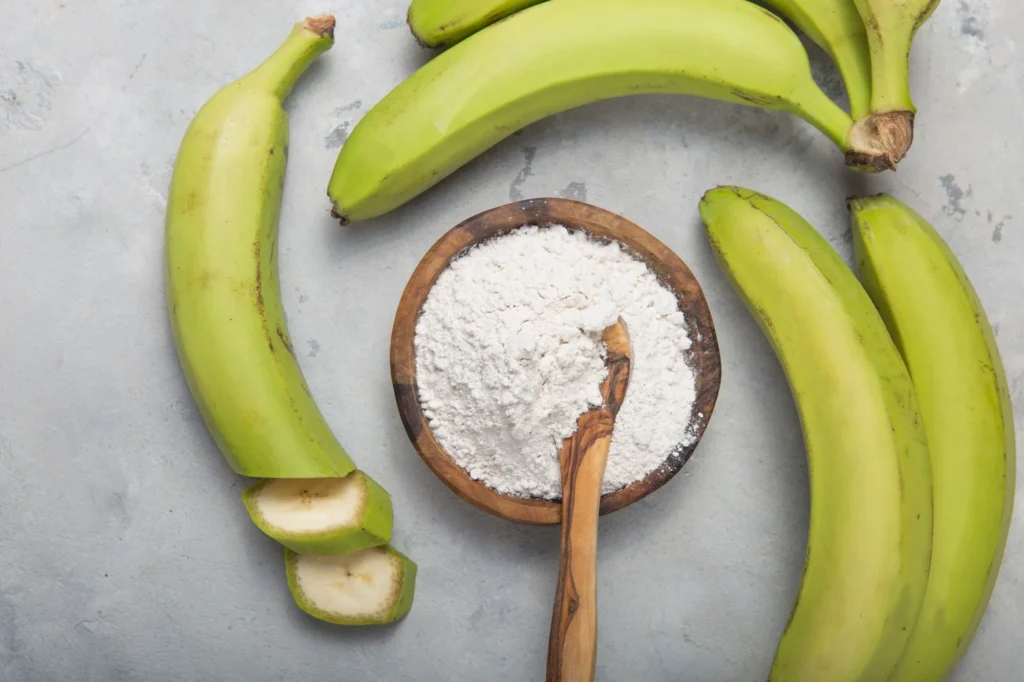
A few tips to make the transition gentle and effective:
- Start slowly: Begin with small servings of cooked/cooled rice, green banana, or legumes to let your gut adjust.
- Stay hydrated: As with any type of fiber, drink plenty of water to support digestion and reduce any bloating.
- Pair with fats: Healthy fats (like olive oil or tahini) slow digestion and help balance blood sugar.
- Be consistent: Regular intake matters more than large occasional servings.
Final Thoughts: Simple Changes, Powerful Results
Resistant starch isn’t just another nutrition buzzword—it’s a science-backed, plant-powered way to improve digestion, support your gut flora, and boost your health from the inside out.
And the best part? You don’t need fancy supplements or animal products. Just cook, cool, and enjoy whole plant foods in creative, satisfying ways.
So the next time you prep potatoes, chill your rice, or enjoy a green banana smoothie, know that you’re doing something amazing for your gut—one delicious bite at a time.
